UK management firms are adapting fast and now employ specific staff to build relationships with residents.
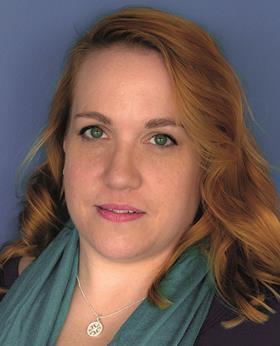
PRS property management has reached a critical moment. Consumers are becoming more aware of the benefits of improved services where they live, and both landlords and management companies are trying to find ways to harness that growing enthusiasm to get ahead of the rest of the market.
There’s new technology to trial and adopt, new processes to learn and new skill sets to instil in staff - and it’s all happening very quickly.
The fact that it’s happening at all should be welcomed: there used to be a time when the market thought about PRS merely as a block for tenants to live in, almost treating it like commercial property.
Now, they are becoming communities with residents, brimming with potential to make people’s lives better.
Coming from the US multi-family market, it’s great to see that some of the best practices I was used to seeing there, which took years to take hold, are now being implemented in the UK at a more accelerated pace.
Many more companies, such as Be:here and Westrock, have been to North American markets to see what can be achieved when we let go of ‘what’s always been done’. It’s not so much adoption but adaption: learning from the successes of other markets and building value from that in your own way.
By bringing the process in-house, a brand is able to engage with the customer from the very start and start to lay the foundations of a loyal, trusting relationship
It can range from something as simple as having a concierge or resident services person at the front desk of a development that knows who the residents are and accepts packages, to something more complex that changes the business structure, such as direct letting to the public without outsourcing to agents who are often strapped for time and stretched between many clients.
Bringing the process in-house means that a brand is engaging with the customer from the very start and starting to lay the foundations of what will hopefully be a loyal, trusting relationship.
Organisations like LIV, the property manager for M&G Real Estate’s PRS property, and Tipi London, Quintain’s B2R brand, are doing just that - handling their customers’ journey from initial contact through the letting process to, hopefully, agreeing a lease renewal - and everything in between.
Residents and community relations
Companies are now employing specific staff to build relationships with residents, under variations of the catch-all term ‘client relations manager’, which could be a single person or a whole team. They can walk residents through the on-boarding process, touch base with them during their lease to see how they’re finding it and address any concerns. Putting staff in charge of a customer’s entire journey is very powerful and lends them a sense of responsibility that means they’re likely to perform their job with more enthusiasm, as well as providing the tenants with a point of contact.

And it’s important to have a presence outside the property as well: getting out into the wider community is key to creating a buzz around your development. Get Living London, for example, isn’t just out talking to local businesses and having a presence at local events; it also ensures that its residents feel part of that community, holding movie nights in the park and helping set up Christmas food markets.
It’s all about driving revenue: the more invested residents are in their community, the more likely they are to tell a friend about their experience, who will then consider the community for their new home. And the more likely residents are to have a friend nearby, the more likely they are to renew their lease. This ultimately reduces void and turnover costs, allowing for increased rental value and bottom-line NOI.
Social media and in-house tech
You have to be in the community digitally as well. Being active on Twitter, LinkedIn and Facebook costs very little other than the man-hours and the business you bring in, and loyalty you build with your customers and followers, can be well worth it. But social media is not the only use of technology that companies are employing to maximise their returns.
The systems we provide to managers are fluid, end-to-end management systems that link directly with the back office
A lot of companies are rightly using portals to interact with their residents. That has obvious benefits for customers, who can log a service request or reserve a spot in a yoga class or sign a lease renewal at the click of a button regardless of whether it’s in office hours.
But it also has massive benefits for managers because you can automate processes through portals and free up staff to build relationships with residents.
It also allows for much greater scale: if the system is built well, it will grow with the company.
And, of course, it cuts out a lot of busywork, meaning you can reduce your overheads while providing a better service.
It’s also important to ensure all your systems integrate, and that’s what technology allows you to do. The systems we provide to managers are fluid, end-to-end management systems that link directly with the back office: as soon as someone makes a query or applies to live on your development, you’ll get a notification - there’s no waiting to synchronise the systems. That immediacy is crucial.
Changing with the market
So you’ve got a great relationship with tenants, you’re out in the local community, you’re active on social media and you’ve got the best in-house tech. How do you ensure you stay future-proofed when the market changes?
There’s no sure-fire solution but there are a few steps that will hold you in good stead. The biggest weapon is recruiting the right people and training your staff properly: the more you invest in your people, the longer they will stay. Your teams will define your business and create your brand and it’s so important to get them passionate about the brand - a passion they can pass on to new team members.
Another way to future-proof is to build a strong brand. While white labelling does have its place, I can see it becoming less and less useful in cases where investors are choosing managing agents who are aligned with their vision and have a strong presence of brand in the market. Renters want to form trusting relationships with their building managers and having a coherent, consistent message that a resident feels is specific to them really helps.

Ultimately the benefits of this, as with technology, will come through future returns. As an example, if I were living in the East Village in Stratford and wanted to move more centrally, I’d know that Get Living London is also developing in Elephant and Castle and therefore would be more likely to look at that scheme based on the excellent service received.
Lastly, it’s about building flexibility into schemes, particularly in the amenities offered - which is something both landlords and management firms should be aware of as early as possible. Perhaps when you’re installing that golf simulator or cinema room you should do it in such a way that you can change the use in three years if residents want something else.
It doesn’t all have to be the next big bang with 20 concierges and three swimming pools in every block. But it is now more important than ever to take care of your residents and ensure that your amenities are flexible to their changing needs.
Customer feedback
Feedback is a huge part of that: we need to be unafraid of the fact that we don’t know everything. The market is evolving and will continue to do so. Asking customers what you can improve is so important and will ultimately determine what developments look like in the future.
Those that listen most keenly to their customers and adapt accordingly will be the ones that grow the fastest. The market is gaining momentum: people are starting to not just speak the jargon of PRS but to translate those words into action.
Some of them are ahead of the curve and some of them are hanging back and figuring out how to make it work - and that’s fine: it’s important that each company determines its own vision and builds passionate teams to play to its strengths and get its individual message across to consumers.
Stephanie Smith is senior account executive at Yardi

About Yardi
Now in its fourth decade, Yardi is committed to the design, development and support of software for real estate investment management and property management. With the Yardi Commercial Suite, Yardi Residential Suite, Yardi Investment Suite and Yardi Orion Business Intelligence, the Yardi Voyager platform is a complete real estate management solution. It includes operations, accounting and services with portfolio-wide business intelligence and platform-wide mobility. Yardi serves clients worldwide from offices in Australia, Asia, the Middle East, Europe and North America.
























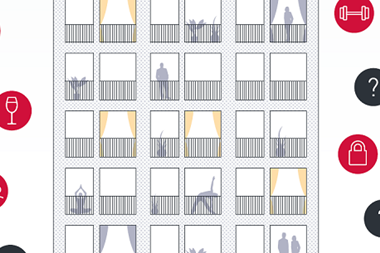
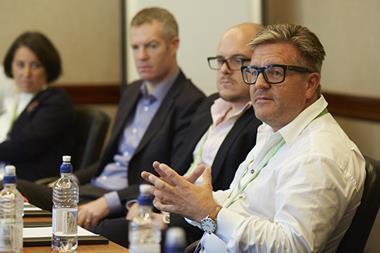

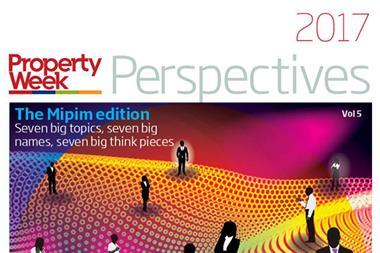
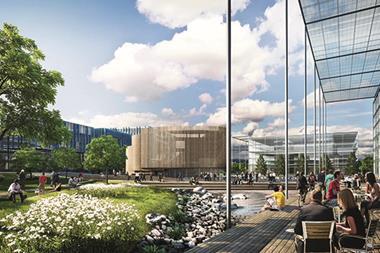
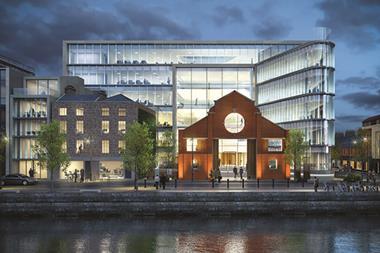
No comments yet